Psychosocial Development \ 1-1
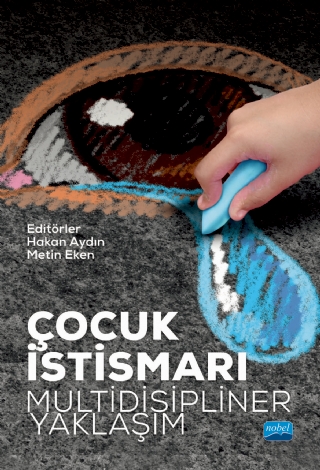
Child abuse is a subject that needs to be studied meticulously in order to be handled with a multidisciplinary approach and to protect the best interests of children. Undoubtedly, the most important contribution to the solution efforts regarding the problem of child abuse will be the attempts to increase scientific and managerial knowledge about this field. The fact that these initiatives include a multidisciplinary approach is of strategic importance considering the extremely limited production in this regard and has the potential to strengthen the search for solutions. Depending on the stated purpose and importance, the ProChild Project has determined as one of its main outputs the production of an edited book, which deals with the problem of child abuse with a multidisciplinary approach. This book; It deals with the problem of child abuse with its knowledge of medicine, education, law and communication, focuses on the problem of representation through the news of child abuse published in internet newspapers, and opens the digital components of child abuse to discussion in detail.
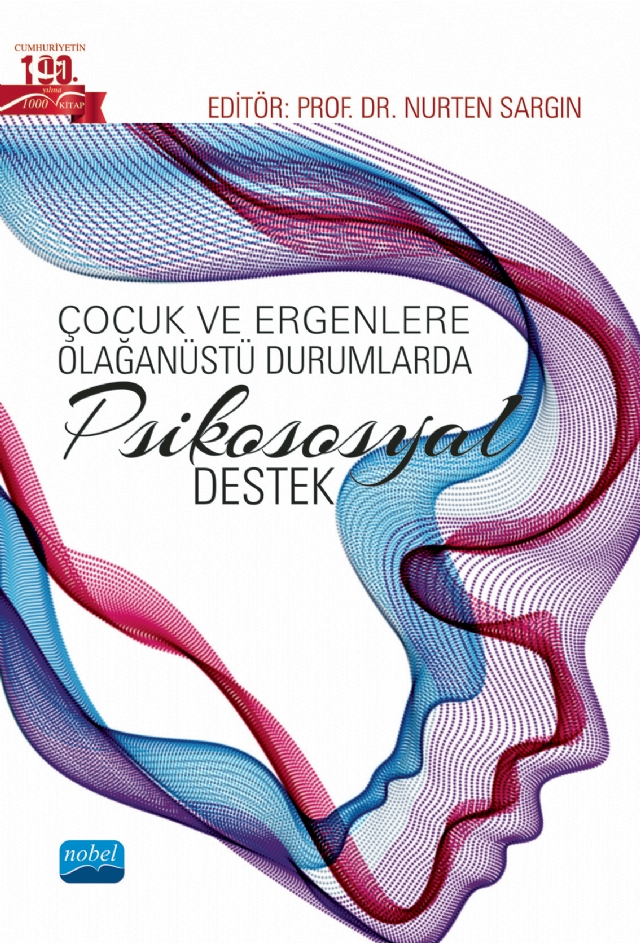
Man has been witnessing and being exposed to extraordinary events called traumatic experiences, from natural disasters to wars, from violence to accidents, many disasters and crises since his existence. However, it has been observed that there has been a rapid increase in extraordinary events in recent years. For example, when we look at some of the events that 15-year-old children are exposed to and witnessed in our country today, terrorist attacks, school bus accidents, plane, helicopter and train accidents, wars, earthquakes, floods, fires, avalanche disasters, increasing domestic violence and abuse cases, economic crises and pandemic comes to the fore. Considering all these experiences, it is seen that there are extremely challenging life events that threaten the mental health of children and adolescents. One of the most important duties of field experts is to help protect children's mental health and to provide psychosocial support in extraordinary situations. In this book, extraordinary situations have been defined, tried to be explained by considering them one by one, and examples of activities to be used in extraordinary events and employees in extraordinary situations are given. I hope that the book will be useful to all field experts, especially children and adolescents, and to those who are interested in these subjects.
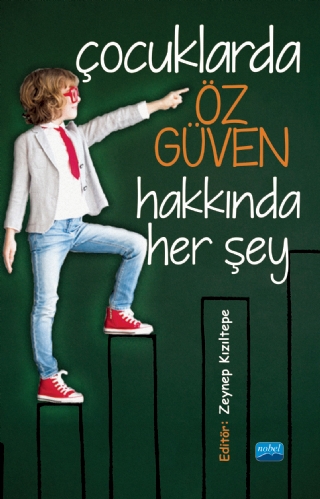
How to raise a self-confident child? How to develop self-confidence? How can we teach our children self-confidence? When our child encounters failure in school life, what can we do so that he can overcome it on his own and his self-confidence is not damaged? What are the responsibilities of parents in raising a self-confident individual? What are the basic principles of raising self-confident, self-sufficient, leader children? In our book, valuable scientists discussed the answers to all these questions within the framework of their expertise; shared their information with us.
Among the topics of our book; how and under what conditions self-confidence develops in the family and at school; There are reasons for the differences in self-confidence among children, what we need to do to gain self-confidence in our children in a balanced way. In addition, in our book, with an overview of the subject of self-confidence, self-confidence in the preschool period, the relationship between sports and self-confidence, self-confidence and awareness, self-confidence and critical thinking, self-confidence in art and mathematics, the connection between self-confidence and well-being and the relationship between self-confidence and well-being. Finally, the excess of self-confidence is included with details, examples and advice to families.
Among the topics of our book; how and under what conditions self-confidence develops in the family and at school; There are reasons for the differences in self-confidence among children, what we need to do to gain self-confidence in our children in a balanced way. In addition, in our book, with an overview of the subject of self-confidence, self-confidence in the preschool period, the relationship between sports and self-confidence, self-confidence and awareness, self-confidence and critical thinking, self-confidence in art and mathematics, the connection between self-confidence and well-being and the relationship between self-confidence and well-being. Finally, the excess of self-confidence is included with details, examples and advice to families.
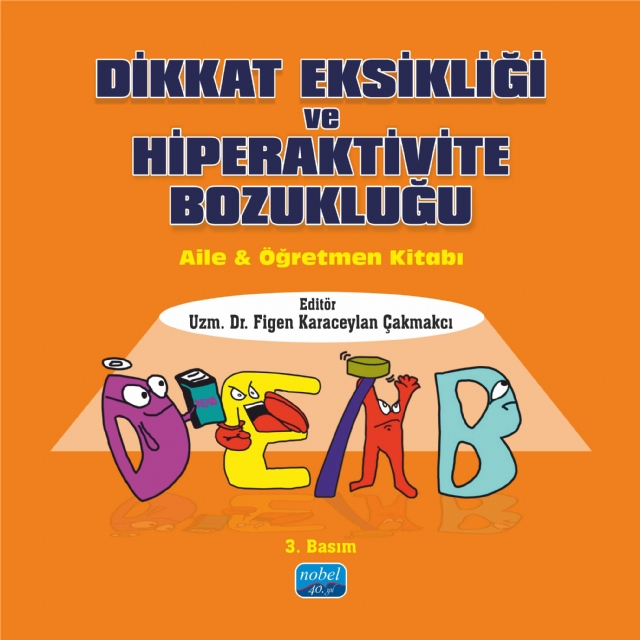
“Attention Deficit Hyperactivity Disorder” (ADHD) is a neuropsychiatric disorder that can disrupt an individual's social life, academic life and family relationships. Although it is a disease that can completely change the future of the child if it is not treated and intervened correctly, satisfactory answers begin to emerge as a result of the right approach and appropriate interventions.
In my 20-year career as a Child and Adolescent Psychiatrist, I have experienced many times that only drug therapy is not sufficient in the treatment of Attention Deficit and Hyperactivity Disorder. The fact that family attitudes and the interventions of the teacher in the classroom are as important as psychopharmacological treatment has motivated me to write such a book.
With this book, it is aimed to inform about the mistakes that we know to be true about Attention Deficit and Hyperactivity Disorder, which is heard by everyone and perhaps defined as today's fashion disease. In addition, it is aimed both to ensure that children with ADHD are understood and to strengthen effective behavior management for families and teachers by providing accurate information and tips to our families and teachers about the relationship between ADHD and learning, which causes misunderstandings and prejudices.
We hope that this book, which offers solutions suitable for the needs of children who are our future, will be a useful resource for everyone who reads it.
In my 20-year career as a Child and Adolescent Psychiatrist, I have experienced many times that only drug therapy is not sufficient in the treatment of Attention Deficit and Hyperactivity Disorder. The fact that family attitudes and the interventions of the teacher in the classroom are as important as psychopharmacological treatment has motivated me to write such a book.
With this book, it is aimed to inform about the mistakes that we know to be true about Attention Deficit and Hyperactivity Disorder, which is heard by everyone and perhaps defined as today's fashion disease. In addition, it is aimed both to ensure that children with ADHD are understood and to strengthen effective behavior management for families and teachers by providing accurate information and tips to our families and teachers about the relationship between ADHD and learning, which causes misunderstandings and prejudices.
We hope that this book, which offers solutions suitable for the needs of children who are our future, will be a useful resource for everyone who reads it.
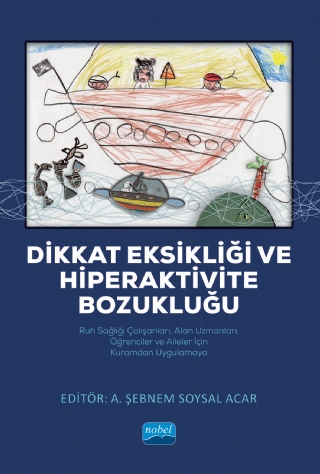
Changing the world is about the way we experience it.
This book, which is a candidate to guide the curious about attention deficit hyperactivity disorder, actually allows us to meet a multi-layered public health problem. The reason why it is different from other books written on this subject so far is hidden in the way it deals with the subject. 96 scientists from 23 different professions tried to embrace today's most common neuropsychiatric disorder by signing 86 chapters. The purpose of this meeting is to draw a general framework for the most common neurodevelopmental problem of childhood, to turn "different" perspectives into "normal". This transdisciplinary meeting is never to reject and/or reduce the problem, but to create a roadmap to use all available resources effectively while struggling with a multi-layered situation.
This book, which is a candidate to guide the curious about attention deficit hyperactivity disorder, actually allows us to meet a multi-layered public health problem. The reason why it is different from other books written on this subject so far is hidden in the way it deals with the subject. 96 scientists from 23 different professions tried to embrace today's most common neuropsychiatric disorder by signing 86 chapters. The purpose of this meeting is to draw a general framework for the most common neurodevelopmental problem of childhood, to turn "different" perspectives into "normal". This transdisciplinary meeting is never to reject and/or reduce the problem, but to create a roadmap to use all available resources effectively while struggling with a multi-layered situation.

“…This book shows how children's early exposure to nature provides fertile ground for the training of the heart and spirit as well as the mind.”
Dr. Louise Chawla
“…Developing a shared understanding of Forest School practices and cultural structure (ethos) will reassure teachers and help parents understand that their children will enjoy learning through play at Forest School.”
Dr. Frances Harris
“…This book covers important topics that will increase readers' knowledge of practice and theory by focusing on the underlying theories and philosophy of the Forest School and how this approach can contribute to holistic child development.”
Dr. Liz O'Brien
“…The Forest School in the UK is a model assumed to have evolved by those of us lucky enough to be there, building on and discussing the collective background knowledge and experience and cultural contexts we come from, and continues to be shaped and developed by practitioners today.”
Dr. Sarah Knight
“...This book is a handbook that aims to increase the theoretical and practical knowledge of individuals' learning in nature and the approach known worldwide as the Forest School. I think all educators, researchers, parents and people interested in learning in nature with children, learning with nature and learning through nature will find something valuable in this handbook.”
Dr. Mark Leather
“...Children will be our future; they will be the policy makers, the parents, the people who make the decisions that will affect the world we live in. The authors of this book are committed to allowing our children the opportunity to grow and develop and become the best people they can be.”
Sarah Blackwell
Dr. Louise Chawla
“…Developing a shared understanding of Forest School practices and cultural structure (ethos) will reassure teachers and help parents understand that their children will enjoy learning through play at Forest School.”
Dr. Frances Harris
“…This book covers important topics that will increase readers' knowledge of practice and theory by focusing on the underlying theories and philosophy of the Forest School and how this approach can contribute to holistic child development.”
Dr. Liz O'Brien
“…The Forest School in the UK is a model assumed to have evolved by those of us lucky enough to be there, building on and discussing the collective background knowledge and experience and cultural contexts we come from, and continues to be shaped and developed by practitioners today.”
Dr. Sarah Knight
“...This book is a handbook that aims to increase the theoretical and practical knowledge of individuals' learning in nature and the approach known worldwide as the Forest School. I think all educators, researchers, parents and people interested in learning in nature with children, learning with nature and learning through nature will find something valuable in this handbook.”
Dr. Mark Leather
“...Children will be our future; they will be the policy makers, the parents, the people who make the decisions that will affect the world we live in. The authors of this book are committed to allowing our children the opportunity to grow and develop and become the best people they can be.”
Sarah Blackwell
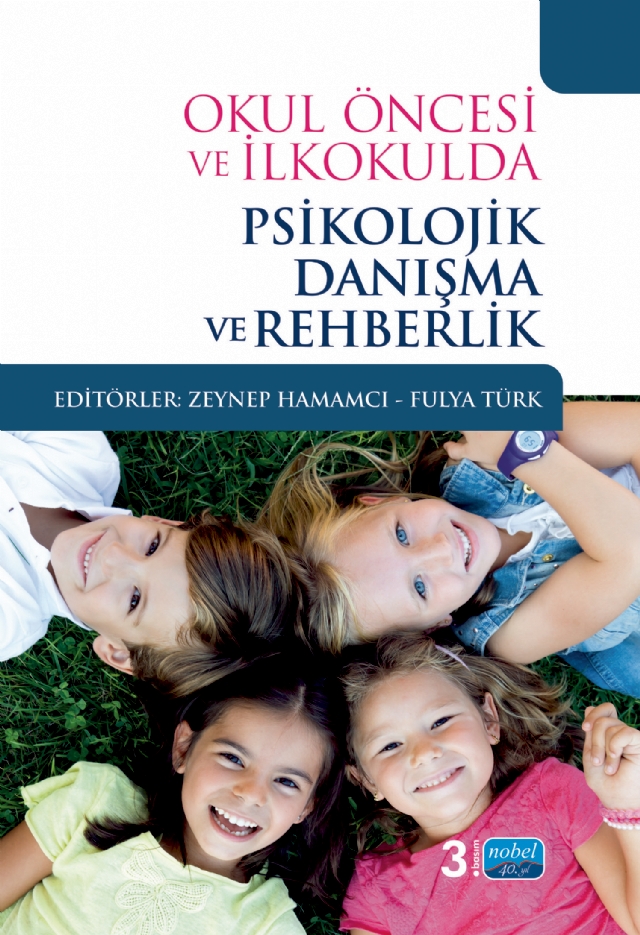
This book; it has been prepared to support psychological counselors who work with children, guide them, and touch their lives, and try to contribute to the smile of the beautiful eyes of children and to help them with their knowledge and practices. In addition, it is thought to be an important resource for psychologists, psychiatrists, pedagogues, child development specialists, preschool and primary school teachers working with children. In this book, psychological counselors working in pre-school and primary schools are presented with the information they will need while working with children, and the issues that will facilitate their practice, by enriching them with examples. While writing the book, pre-school and primary school children were taken as a basis; In particular, it has been tried to include the features, problems, approaches and solutions specific to this age group. Our aim is to help those who touch the lives of children, even for a little bit. For this reason, we hope that it will contribute to all psychological counselors, specialists working with children and counselor candidates.

One of the traumatic experiences in childhood and adolescence is "bullying" behaviors. Bullying behaviors of various types (verbal, physical, emotional, racist, hiding, behavior disrupting, taking/destroying something belonging to someone else and sexual) seen at school and in virtual environments adversely affect the social, emotional and psychological development of children and adolescents. and cause legal problems.
These negative effects of bullying behaviors are not limited to childhood and adolescence, but it is seen that they negatively affect important personality traits such as self-esteem, self-confidence, psychological resilience, psychological well-being and feelings of love, respect, tolerance and trust in bilateral human relations.
In this work, the types, causes and consequences of bullying behavior, which is an important obstacle to individual development and positive bilateral human relations, are discussed in detail, and a model for the prevention of these behaviors with empathic skills is presented. With this book, besides academicians and practitioners (school psychological counselor, child and adolescent psychologist, classroom guidance teacher) who will work on bullying; It is aimed to help school administrators, branch teachers and parents develop awareness about the types, causes and consequences of bullying behavior.
These negative effects of bullying behaviors are not limited to childhood and adolescence, but it is seen that they negatively affect important personality traits such as self-esteem, self-confidence, psychological resilience, psychological well-being and feelings of love, respect, tolerance and trust in bilateral human relations.
In this work, the types, causes and consequences of bullying behavior, which is an important obstacle to individual development and positive bilateral human relations, are discussed in detail, and a model for the prevention of these behaviors with empathic skills is presented. With this book, besides academicians and practitioners (school psychological counselor, child and adolescent psychologist, classroom guidance teacher) who will work on bullying; It is aimed to help school administrators, branch teachers and parents develop awareness about the types, causes and consequences of bullying behavior.
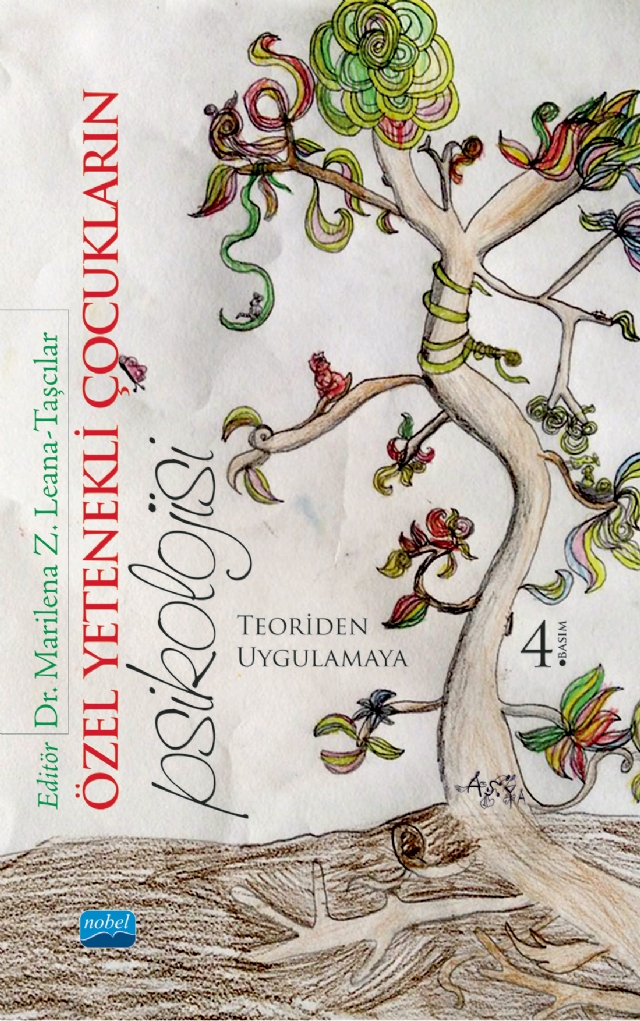
The education of gifted and talented students, or as it has been called until today, is an area that has been known for a long time and is being developed. However, most of the studies carried out in our country focus mainly on meeting the educational needs of gifted children. Problems such as motivation, perfectionism, and math anxiety experienced by gifted children, their reflections on educational processes, and offering solutions such as bibliotherapy that can be used in support training rooms for these problems are issues that are not emphasized much. Therefore, this book; It aims to raise awareness of teacher candidates, teachers working in this field, psychological counselors, psychologists and parents of gifted children on these issues. For this purpose, academic theses and studies on the emotional problems of gifted children have been provided to you in a simpler language.
The common wish of all authors is to contribute to your being a high-aware supporter of the issues that our special talented/gifted children have emotional difficulties. We invite you to discover the inner worlds of gifted children! Happy reading….
The common wish of all authors is to contribute to your being a high-aware supporter of the issues that our special talented/gifted children have emotional difficulties. We invite you to discover the inner worlds of gifted children! Happy reading….

“My teachers; They said my mind was slow, that I was antisocial, and that I'd be dazed by my stupid dreams until I died."
Albert Einstein – Scientist
Specific Learning Disability (SLD); It is a neurobiologically based disorder that is often noticed with the beginning of the child's academic life, but if it is not detected and intervened by specialists, its lifelong effect compels the person to struggle in all areas of his life, and genetic and environmental factors are effective. The definition of "DYSLExia" is used more often than "Specific Learning Disorder", as it is often defined as only the difficulty experienced in the "reading" skill.
Although it is sometimes defined as "disorder", sometimes "disease", sometimes "difficulty", sometimes "difference", it is a condition independent of intelligence that seriously affects both social and academic life of the individual, but in some cases it is a mis-perceived "intelligence retardation". is a hassle.
ÖÖG; Since it is a difficulty that affects language development and use, verbal and written expression, literacy and mathematics skills, it can lead to school failure and additional school adjustment problems. Considering the importance of school life in the child's mental development, when not correctly detected and intervened, the accompanying Attention Deficit and Hyperactivity Disorder, Anxiety Disorders and Behavioral Disorders are often overlooked comorbid conditions and pave the way for the child to experience emotional trauma.
As a result of nearly 10 years of experience and experience, it was decided to write this book. Practical practices of a team of Child and Adolescent Psychiatrists and Child Psychologists were shared. I hope it will be used as a reference book about what are known to be true about SLD, the importance of early detection and correct intervention, and what the legal rights of the child with SLD are…
Albert Einstein – Scientist
Specific Learning Disability (SLD); It is a neurobiologically based disorder that is often noticed with the beginning of the child's academic life, but if it is not detected and intervened by specialists, its lifelong effect compels the person to struggle in all areas of his life, and genetic and environmental factors are effective. The definition of "DYSLExia" is used more often than "Specific Learning Disorder", as it is often defined as only the difficulty experienced in the "reading" skill.
Although it is sometimes defined as "disorder", sometimes "disease", sometimes "difficulty", sometimes "difference", it is a condition independent of intelligence that seriously affects both social and academic life of the individual, but in some cases it is a mis-perceived "intelligence retardation". is a hassle.
ÖÖG; Since it is a difficulty that affects language development and use, verbal and written expression, literacy and mathematics skills, it can lead to school failure and additional school adjustment problems. Considering the importance of school life in the child's mental development, when not correctly detected and intervened, the accompanying Attention Deficit and Hyperactivity Disorder, Anxiety Disorders and Behavioral Disorders are often overlooked comorbid conditions and pave the way for the child to experience emotional trauma.
As a result of nearly 10 years of experience and experience, it was decided to write this book. Practical practices of a team of Child and Adolescent Psychiatrists and Child Psychologists were shared. I hope it will be used as a reference book about what are known to be true about SLD, the importance of early detection and correct intervention, and what the legal rights of the child with SLD are…
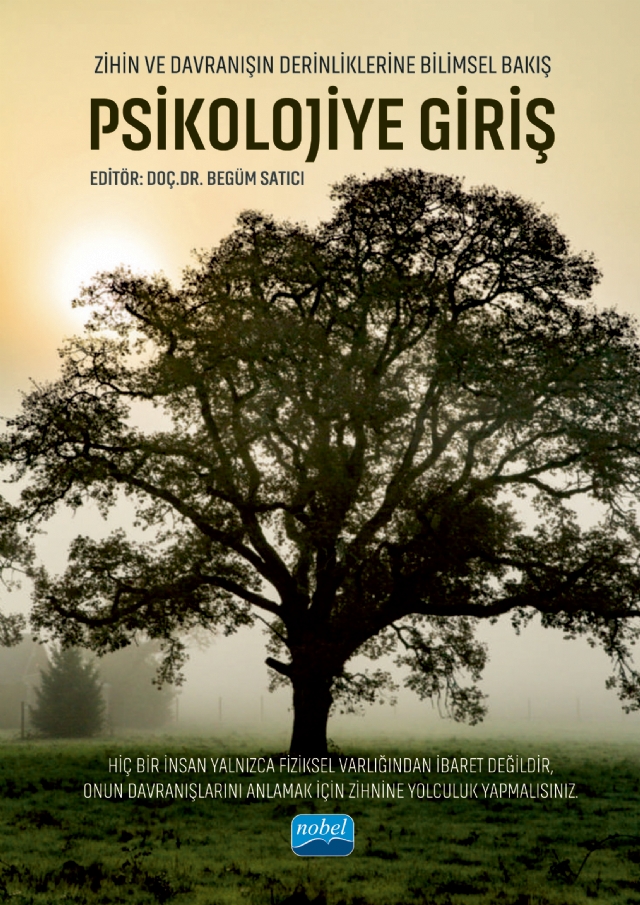
Since you have started to read this book, we can assume that you have an interest and curiosity in psychology. Psychology attracts the attention of almost everyone at some point because it tries to explain the "me" as a human being. Some want to understand themselves, some their partner, their boss, some their children and some their parents. In other words, the effort to understand people and ourselves in the first place leads us to learn psychology. As in the verses of the famous folk poet of Anatolia, Yunus Emre, which are rosewood in our language, "Science is knowledge, knowledge is knowing yourself, if you do not know yourself, it is a lot of reading".
However, this self-knowledge, self-learning, self-discovery can often turn into a toy in the hands of those who turn science into a profit for their own interests. As a matter of fact, not understanding psychology correctly "Are you reading my mind now?" It may also cause you to become the target of the question. “I am also interested in psychology.”, “We also understand psychology, I love personal development books.” Such sentences will be some of the things that those who will specialize in this field will often hear. So, is psychology really a field that anyone who is interested in can specialize in by reading a few books? I can imagine that you answered “no” to this question. Still, it can be equally dangerous to popularize psychology too much and push it away from science, leaving it only in the hands of scientists and making it elitist. Because science will only be useful as long as it reaches people and continues to develop like a living organism in life.
The science of psychology was shaped centuries ago by the answers given by philosophers to the questions they asked to understand human, and then it was born as a science on the basis of physiological studies. Psychology continues to keep our curiosity alive today, with hundreds of theories and millions of concepts written about it.
However, this self-knowledge, self-learning, self-discovery can often turn into a toy in the hands of those who turn science into a profit for their own interests. As a matter of fact, not understanding psychology correctly "Are you reading my mind now?" It may also cause you to become the target of the question. “I am also interested in psychology.”, “We also understand psychology, I love personal development books.” Such sentences will be some of the things that those who will specialize in this field will often hear. So, is psychology really a field that anyone who is interested in can specialize in by reading a few books? I can imagine that you answered “no” to this question. Still, it can be equally dangerous to popularize psychology too much and push it away from science, leaving it only in the hands of scientists and making it elitist. Because science will only be useful as long as it reaches people and continues to develop like a living organism in life.
The science of psychology was shaped centuries ago by the answers given by philosophers to the questions they asked to understand human, and then it was born as a science on the basis of physiological studies. Psychology continues to keep our curiosity alive today, with hundreds of theories and millions of concepts written about it.

This book was written to contribute to the formation of social awareness in this field by presenting the characteristics of gifted children and their education from different perspectives.
The main target audience of the book; parents, teachers, university students, academics and politicians who have gifted children.
The information in the book, related literature; It is supported by the statements of gifted children, teachers, mothers and fathers.
Some of the questions you can find answers to in the book are:
• What characteristics do gifted children have?
• How are gifted children recognized?
• What is the number of gifted people in Turkey?
• What are the needs of gifted children?
• Which models are used in the education of the gifted?
• What are the problems experienced by gifted children?
• How can these children be happy?
• What can teachers do in the education of these children?
• What can we do as families?
• What policies should be developed for these children?
The main target audience of the book; parents, teachers, university students, academics and politicians who have gifted children.
The information in the book, related literature; It is supported by the statements of gifted children, teachers, mothers and fathers.
Some of the questions you can find answers to in the book are:
• What characteristics do gifted children have?
• How are gifted children recognized?
• What is the number of gifted people in Turkey?
• What are the needs of gifted children?
• Which models are used in the education of the gifted?
• What are the problems experienced by gifted children?
• How can these children be happy?
• What can teachers do in the education of these children?
• What can we do as families?
• What policies should be developed for these children?